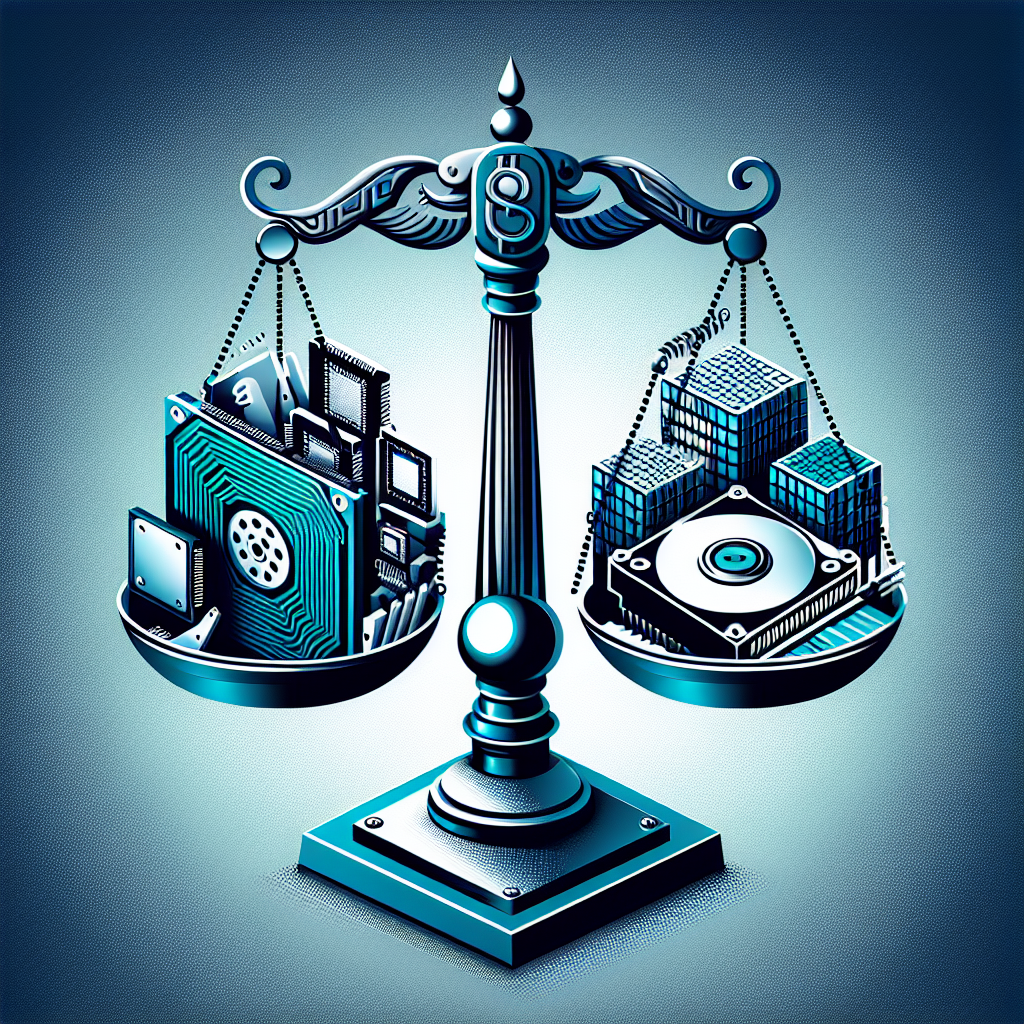Your cart is currently empty!
Exploring the Advantages and Limitations of Hard Disk Drives in Modern Computing

Hard disk drives (HDDs) have been a staple in computing for decades, providing a reliable and cost-effective storage solution for personal computers, servers, and other devices. However, with the rise of solid-state drives (SSDs) in recent years, the advantages and limitations of HDDs have come into sharper focus. In this article, we will explore the advantages and limitations of HDDs in modern computing.
Advantages of Hard Disk Drives:
1. Cost-Effectiveness: One of the primary advantages of HDDs is their cost-effectiveness. HDDs are generally cheaper per gigabyte compared to SSDs, making them an attractive option for budget-conscious consumers and businesses.
2. Large Storage Capacity: HDDs are available in larger storage capacities than SSDs, making them ideal for storing large amounts of data such as media files, documents, and applications.
3. Longevity: HDDs have a longer lifespan compared to SSDs, as they are not susceptible to wearing out from constant read and write operations. This makes them a reliable option for long-term data storage.
4. Compatibility: HDDs are compatible with a wide range of devices and operating systems, making them a versatile storage solution for a variety of computing needs.
Limitations of Hard Disk Drives:
1. Slower Performance: One of the main limitations of HDDs is their slower read and write speeds compared to SSDs. This can result in slower boot times, file transfers, and application loading times.
2. Mechanical Failure: HDDs contain moving parts, such as spinning disks and read/write heads, which can be prone to mechanical failure over time. This can lead to data loss and the need for expensive data recovery services.
3. Power Consumption: HDDs consume more power than SSDs, leading to higher energy costs and reduced battery life in laptops and other portable devices.
4. Fragility: HDDs are more susceptible to damage from physical shocks and vibrations compared to SSDs, which have no moving parts. This makes HDDs less suitable for use in portable devices or environments where they may be exposed to rough handling.
In conclusion, while HDDs continue to offer cost-effective and high-capacity storage solutions for many computing needs, they do have limitations in terms of performance, reliability, and power consumption. As technology continues to advance, SSDs are becoming increasingly popular for their faster speeds, lower power consumption, and greater durability. Ultimately, the choice between HDDs and SSDs will depend on the specific needs and priorities of the user, weighing the advantages and limitations of each type of storage solution.

Leave a Reply